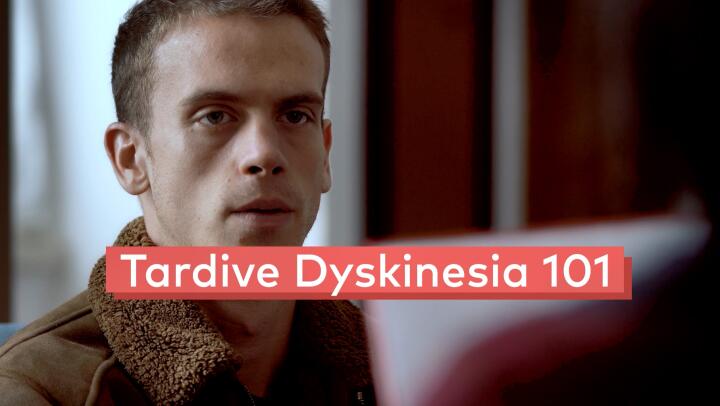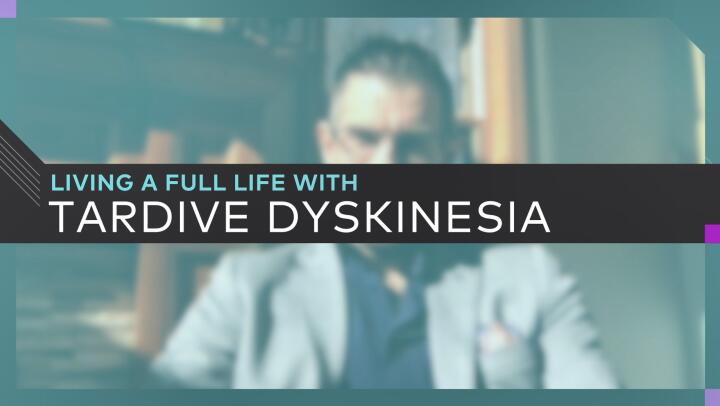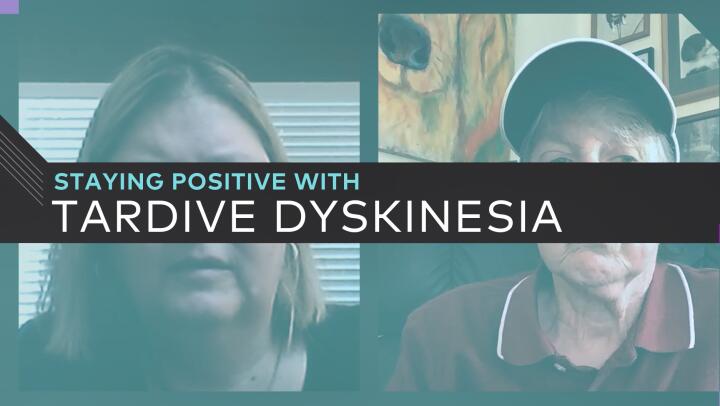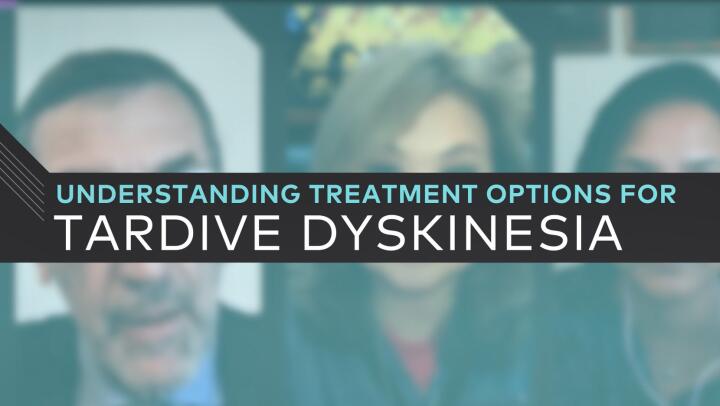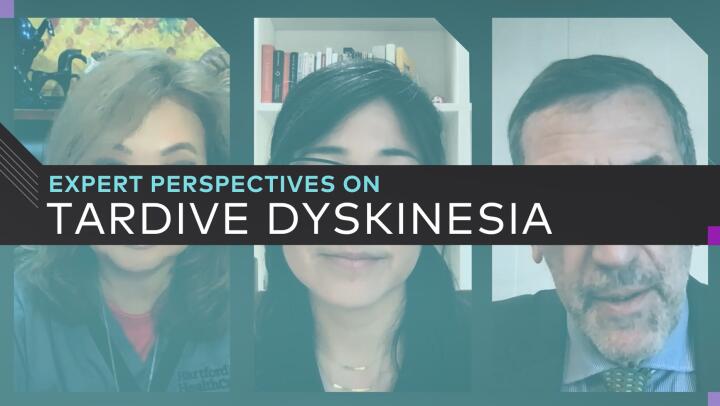11 Things Doctors Want You to Know About Schizophrenia

Medically Reviewed By William C. Lloyd III, MD, FACS
Written By Nancy LeBrun on September 23, 2020
-
 Real Perspectives on a Misunderstood IllnessDiseases of the mind can be frightening and isolating. While commonly misconceived as a “split personality,” in reality schizophrenia is a mental illness marked by hallucinations, delusions, and an inability to think clearly. But there are treatments that can help. Here’s what some leading doctors who treat schizophrenia want patients and their loved ones to know about this often-stigmatized condition.
Real Perspectives on a Misunderstood IllnessDiseases of the mind can be frightening and isolating. While commonly misconceived as a “split personality,” in reality schizophrenia is a mental illness marked by hallucinations, delusions, and an inability to think clearly. But there are treatments that can help. Here’s what some leading doctors who treat schizophrenia want patients and their loved ones to know about this often-stigmatized condition. -
 1. “There may be early warning signs of schizophrenia.”Schizophrenia usually develops in people who are in their late teens and early 20s, but there can be hints of it much earlier in life. “We now understand there is something called the prodromal phase of schizophrenia,” says Raymond Kotwicki, MD, chief medical officer at Skyland Trail, a mental health treatment organization in Atlanta.” It occurs even in children who are 5 or 6 years old—and it’s a sign someone may be at higher risk for developing full-blown schizophrenia.” Not every one who has these signs—which include depression, anxiety, social issues, and difficulty in school—goes on to develop the disease but, Dr. Kotwicki adds, “This is interesting because it opens up a lot of possibilities for prevention.”
1. “There may be early warning signs of schizophrenia.”Schizophrenia usually develops in people who are in their late teens and early 20s, but there can be hints of it much earlier in life. “We now understand there is something called the prodromal phase of schizophrenia,” says Raymond Kotwicki, MD, chief medical officer at Skyland Trail, a mental health treatment organization in Atlanta.” It occurs even in children who are 5 or 6 years old—and it’s a sign someone may be at higher risk for developing full-blown schizophrenia.” Not every one who has these signs—which include depression, anxiety, social issues, and difficulty in school—goes on to develop the disease but, Dr. Kotwicki adds, “This is interesting because it opens up a lot of possibilities for prevention.” -
-
 2. “Early treatment can make a difference.”The sooner doctors diagnose and begin treating schizophrenia, the better patients tend to do. “Early intervention can have a tremendous impact on the person who may be experiencing symptoms,” says Jeffrey Borenstein, MD, president of the Brain and Behavior Research Foundation in New York. “Even starting omega-3 fatty acids and making sure kids get extra attention in school and at home might decrease the likelihood of developing the illness,” Dr. Kotwicki adds. “Or if they do, the symptoms may not be as severe.”
2. “Early treatment can make a difference.”The sooner doctors diagnose and begin treating schizophrenia, the better patients tend to do. “Early intervention can have a tremendous impact on the person who may be experiencing symptoms,” says Jeffrey Borenstein, MD, president of the Brain and Behavior Research Foundation in New York. “Even starting omega-3 fatty acids and making sure kids get extra attention in school and at home might decrease the likelihood of developing the illness,” Dr. Kotwicki adds. “Or if they do, the symptoms may not be as severe.” -
 3. “Schizophrenia is a medical disease like any other illness.”“Whether it is diabetes or appendicitis or a broken arm, schizophrenia is like those, except the organ it affects—the brain—is far more complicated,“ says Jeffrey Gerber, MD, chief medical officer at the Austen Riggs Center in Stockbridge, Mass. “People think if someone just tried harder or picked themselves up by their bootstraps they could get better. What we now know is that mental illnesses are a medical problem,” says Dr. Kotwicki. “You cannot think yourself well if you have schizophrenia, just like you can’t think yourself well if you have lymphoma.”
3. “Schizophrenia is a medical disease like any other illness.”“Whether it is diabetes or appendicitis or a broken arm, schizophrenia is like those, except the organ it affects—the brain—is far more complicated,“ says Jeffrey Gerber, MD, chief medical officer at the Austen Riggs Center in Stockbridge, Mass. “People think if someone just tried harder or picked themselves up by their bootstraps they could get better. What we now know is that mental illnesses are a medical problem,” says Dr. Kotwicki. “You cannot think yourself well if you have schizophrenia, just like you can’t think yourself well if you have lymphoma.” -
 4. “Symptoms of schizophrenia tend to occur in cycles.”Schizophrenia often follows a pattern of getting better and worse, and each phase has symptoms that doctors call “positive” and “negative.” “The hallucinations and paranoid delusions are usually described as being positive symptoms of schizophrenia,” Dr. Gerber explains. “These can often be treated quickly with medications.” However, “What medications are much worse at treating, and sometimes don’t help at all, are what we call the negative symptoms,” says Dr. Kotwicki. “And those are the things that are missing: the lack of motivation to be involved in society or relationships and the lack of emotional responses
4. “Symptoms of schizophrenia tend to occur in cycles.”Schizophrenia often follows a pattern of getting better and worse, and each phase has symptoms that doctors call “positive” and “negative.” “The hallucinations and paranoid delusions are usually described as being positive symptoms of schizophrenia,” Dr. Gerber explains. “These can often be treated quickly with medications.” However, “What medications are much worse at treating, and sometimes don’t help at all, are what we call the negative symptoms,” says Dr. Kotwicki. “And those are the things that are missing: the lack of motivation to be involved in society or relationships and the lack of emotional responses -
 5. “Effective treatment for schizophrenia requires more than medication.”While newer medications for schizophrenia can work well and have fewer side effects than earlier drugs, you can’t just pop a pill. ‘“Schizophrenia is a lifelong, chronic illness,” says Dr. Gerber. “Medications are important and very helpful, but they are not enough,” he says. “You want a person to be in treatment with a psychiatrist who is not only providing medicine but is also speaking with the person counseling them,” says Dr. Borenstein. “Things that are part of a comprehensive treatment program, like art therapy and music therapy, are designed to help people feel joy, connect with others socially, and help people have the experience of emotions,” adds Dr. Kotwicki.
5. “Effective treatment for schizophrenia requires more than medication.”While newer medications for schizophrenia can work well and have fewer side effects than earlier drugs, you can’t just pop a pill. ‘“Schizophrenia is a lifelong, chronic illness,” says Dr. Gerber. “Medications are important and very helpful, but they are not enough,” he says. “You want a person to be in treatment with a psychiatrist who is not only providing medicine but is also speaking with the person counseling them,” says Dr. Borenstein. “Things that are part of a comprehensive treatment program, like art therapy and music therapy, are designed to help people feel joy, connect with others socially, and help people have the experience of emotions,” adds Dr. Kotwicki. -
-
 6. “It’s important to treat psychotic episodes quickly.”When a patient loses touch with reality, “Using medications to break through the psychosis is absolutely imperative,” Dr. Kotwicki says. “Every time someone has an episode where they are actively psychotic, the prognosis worsens. It is important to be assertive in preventing acute episodes to keep people as functional as possible. When people are experiencing psychotic symptoms, it damages brain cells, so people should get treatment as soon as possible to prevent cognitive decline,” he says.
6. “It’s important to treat psychotic episodes quickly.”When a patient loses touch with reality, “Using medications to break through the psychosis is absolutely imperative,” Dr. Kotwicki says. “Every time someone has an episode where they are actively psychotic, the prognosis worsens. It is important to be assertive in preventing acute episodes to keep people as functional as possible. When people are experiencing psychotic symptoms, it damages brain cells, so people should get treatment as soon as possible to prevent cognitive decline,” he says. -
 7. “Take action if you notice suicidal thoughts in people with schizophrenia.”“Suicide risk is really elevated in people who have schizophrenia,” says Dr. Kotwicki. “When people with schizophrenia have an auditory hallucination–hearing voices that are telling them to do things—that is a real risk factor for suicide.” People with schizophrenia may also abuse alcohol or drugs. “If I were hearing voices telling me that I am a horrible person all of the time,” he notes, “I probably would want to be intoxicated as well. When [substance abuse] enters the equation, the risk of suicide skyrockets.” If you suspect a person is having suicidal thoughts, call a doctor right away.
7. “Take action if you notice suicidal thoughts in people with schizophrenia.”“Suicide risk is really elevated in people who have schizophrenia,” says Dr. Kotwicki. “When people with schizophrenia have an auditory hallucination–hearing voices that are telling them to do things—that is a real risk factor for suicide.” People with schizophrenia may also abuse alcohol or drugs. “If I were hearing voices telling me that I am a horrible person all of the time,” he notes, “I probably would want to be intoxicated as well. When [substance abuse] enters the equation, the risk of suicide skyrockets.” If you suspect a person is having suicidal thoughts, call a doctor right away. -
 8. “People overestimate violent tendencies in people with schizophrenia.”“The rate of violence in individuals with schizophrenia is higher than in the general population, but it is not nearly as high as people often think it is,” says Dr. Gerber. The individuals with schizophrenia most likely to be violent are those who had been violent before they had schizophrenia,” he adds. “So do we need to be alert to it? Do we need to get them treatment? Absolutely. But I think to label people with schizophrenia as pariahs, assume they are violent, and put them outside of society–to me that would be a huge step backwards.”
8. “People overestimate violent tendencies in people with schizophrenia.”“The rate of violence in individuals with schizophrenia is higher than in the general population, but it is not nearly as high as people often think it is,” says Dr. Gerber. The individuals with schizophrenia most likely to be violent are those who had been violent before they had schizophrenia,” he adds. “So do we need to be alert to it? Do we need to get them treatment? Absolutely. But I think to label people with schizophrenia as pariahs, assume they are violent, and put them outside of society–to me that would be a huge step backwards.” -
 9. “Family support is a crucial part of treatment.”If you have a family member who has been diagnosed with schizophrenia, being involved in your loved one’s care is critical. “There have been studies that look at variables that determine a good prognosis for people with schizophrenia, and the number one variable is having a good support system,” says Dr. Kotwicki. Families need to care for themselves, too. “This is not something people can handle by themselves or even in small groups,” says Dr. Gerber. “You need a lot of support.”
9. “Family support is a crucial part of treatment.”If you have a family member who has been diagnosed with schizophrenia, being involved in your loved one’s care is critical. “There have been studies that look at variables that determine a good prognosis for people with schizophrenia, and the number one variable is having a good support system,” says Dr. Kotwicki. Families need to care for themselves, too. “This is not something people can handle by themselves or even in small groups,” says Dr. Gerber. “You need a lot of support.” -
 10. “There may not be a cure, but there is recovery.”Schizophrenia may never go away completely, but advances in treatment have helped many people. “The goal is to manage the symptoms and ideally prevent an episode from happening throughout someone’s life. We call that philosophy ‘recovery,’” says Dr. Kotwicki. “The goal for patients is to enjoy the things they want to get out of life,” says Dr. Gerber. “Family, relationships, work, things that interest them, public service—all the things I would say make up a good life.”
10. “There may not be a cure, but there is recovery.”Schizophrenia may never go away completely, but advances in treatment have helped many people. “The goal is to manage the symptoms and ideally prevent an episode from happening throughout someone’s life. We call that philosophy ‘recovery,’” says Dr. Kotwicki. “The goal for patients is to enjoy the things they want to get out of life,” says Dr. Gerber. “Family, relationships, work, things that interest them, public service—all the things I would say make up a good life.” -
 11. “There has been progress, but there are still challenges.”There is a shortage of hospital beds for mental health patients, so most treatment for schizophrenia is short-term and outpatient. “More people are doing better now than in the past,” Dr. Gerber says, “but we still have a long way to go. I would like to see a much more continuous level of care. That is number one on my list.” And, he adds, he would like to “get away from the notion that somehow schizophrenia or any psychiatric disorder is a failure of character or a failure of will or a somehow a sign of someone being wrong or bad or something to be ashamed of.” And, as Dr. Borenstein says, “Where there is help, there is hope.”
11. “There has been progress, but there are still challenges.”There is a shortage of hospital beds for mental health patients, so most treatment for schizophrenia is short-term and outpatient. “More people are doing better now than in the past,” Dr. Gerber says, “but we still have a long way to go. I would like to see a much more continuous level of care. That is number one on my list.” And, he adds, he would like to “get away from the notion that somehow schizophrenia or any psychiatric disorder is a failure of character or a failure of will or a somehow a sign of someone being wrong or bad or something to be ashamed of.” And, as Dr. Borenstein says, “Where there is help, there is hope.”
11 Things Doctors Want You to Know About Schizophrenia
















